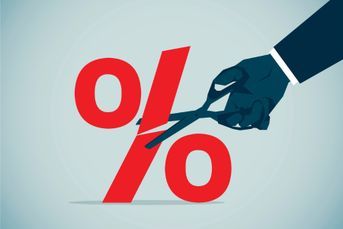Could you be saving too much for retirement?
A new book cautions against paying down debt too aggressively, telling readers to build up their rainy day savings instead.
In 2016, I finally paid off my student debt. Practically every other cent left over after rent and other living expenses went into my retirement account. Was it a mistake to load up my 401(k)? Thomas Anderson thinks so. This is our story.
Compared with the average American, I’m doing all right. I have a good job, I’m saving regularly, and I’m debt-free for the first time since graduate school. That doesn’t feel like nearly enough, though, not in Manhattan anyway, where everybody else seems to be enjoying $200 monthly gym memberships, $500 Broadway tickets and $800 parkas.
Those of us not born into money, or likely to stumble into it, are stuck building wealth the old-fashioned way, over decades of hard work, good luck and hundreds of smart choices about our careers, our investments and even our romantic lives. There are plenty of rules to help guide you in making these choices. The one I’ve been sticking with is pay down debt as quickly as possible while saving as much as possible for retirement.
Turns out that rule is wrong — at least according to “The Value of Debt in Building Wealth,” a new book by Mr. Anderson. A former Morgan Stanley financial adviser, he now heads Supernova Cos., a firm that sells educational materials and tools to advisers. With an MBA from the University of Chicago, the 42-year-old is also the kind of guy who names his dog after a Nobel Prize-winning economist (Harry, for Harry Markowitz) and harbors a healthy obsession with mathematical concepts such as the Fibonacci sequence. “In our anti-debt world, most people are taking on too much debt too early in life and paying down that debt too aggressively,” he writes. “As a result, they are not saving until later in life,” when they have lost much of the power of compounding.
So maybe I shouldn’t have paid off my student debt last year after all? Luckily, I could ring up Mr. Anderson in Chicago and ask him. I know him from writing about one of his previous books, which argued that individuals, especially the wealthy, should be more sophisticated in wielding debt as a financial tool.
Mr. Anderson doesn’t seem to think zeroing out the student loans I’d been dragging behind me for 14 years was such a bad idea, especially compared with other far more serious mistakes I’m making — namely, locking up way too much money in my retirement accounts and investing too heavily in stocks.
“The Value of Debt” contains several nuggets of pithy advice: Aim to save at least 15% of your income. Also, “the best way to feel rich is to live in a less expensive home than you can afford.” Yet Mr. Anderson mostly steers clear of one-size-fits-all prescriptions. Instead, he divides readers into four financial profiles, from those just starting out all the way to the very rich. The key criterion isn’t how much money you have. What matters — and what determines your progress from one end of the wealth spectrum to the other — is how you balance the various components of your financial life: income, savings and debt.
It’s all about getting the proportions right. If your net worth is less than half your annual income, for example, you should “avoid taking on any new debt” at all. If you’re in Mr. Anderson’s second phase, more or less where I land, you should aim for: no “oppressive” debt; a cash reserve six times your monthly gross income; retirement savings six times your monthly income; and last but not least, you should have a separate pot, for “big life changes,” like marriage or buying a home, equal to nine times your monthly income.
Filling out the book’s worksheets, I was surprised to learn I’m woefully short of cash, with less than half of the money recommended. Most surprising was seeing that I had in my 401(k) and individual retirement accounts three times what Mr. Anderson recommends.
“I need Ben to have more flexibility,” he says, referring to me. That means more cash and more after-tax investments that I can sell during an emergency. What if I lose my job during an economic downturn? “You’re not going to want to take just the first job that comes up,” Mr. Anderson says. “You’re going to need to ride it out” for three months, six months or even longer.
Liquidity, the ability to access your money when you absolutely need it, is a key concept for Mr. Anderson. A thousand dollars in the bank is more useful than $1,000 tied up in a retirement account that charges a penalty for withdrawals — or in collectible figurines.
It isn’t just about riding out a crisis. Liquidity is also important for smart investing and homeownership decisions. I tell Mr. Anderson that I, unlike my younger siblings, don’t own my home. And I have 100% of my investments in stocks. While criticizing my investing philosophy, calling it “dangerous,” he endorses my decision to rent, for now. His reasons for each are similar. Stocks and real estate are at record prices. At some point, those markets will crash. “Then you have the flexibility and liquidity to step in and buy,” he says.
I’ve started to take Mr. Anderson’s advice. I moved some of my investments out of stocks just as, luckily, equities were hitting new highs. I haven’t gotten around to lowering my 401(k) contribution yet. Would the extra money in my paycheck simply inspire me to spend more? Maybe. I really should buy a warmer coat, donate more to charity and finally see Hamilton.
Learn more about reprints and licensing for this article.








